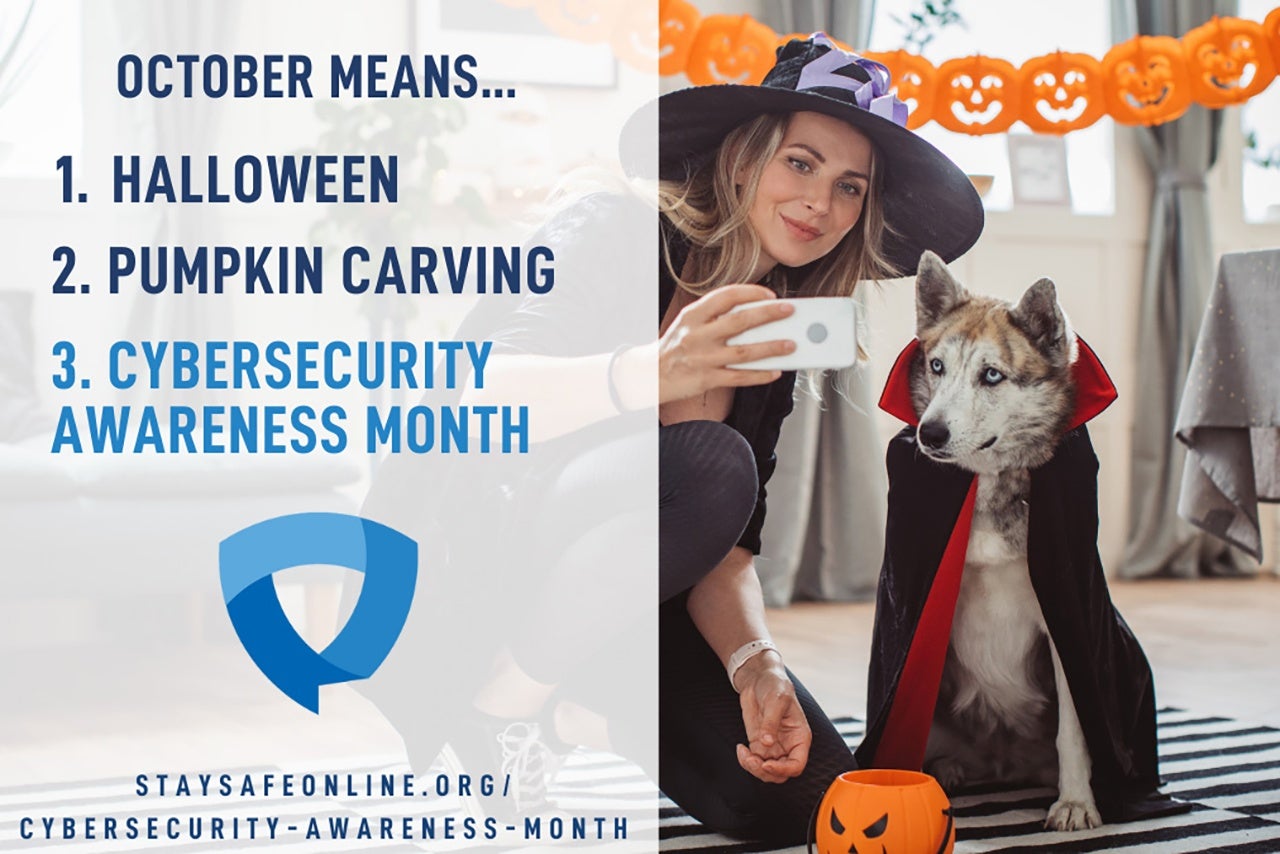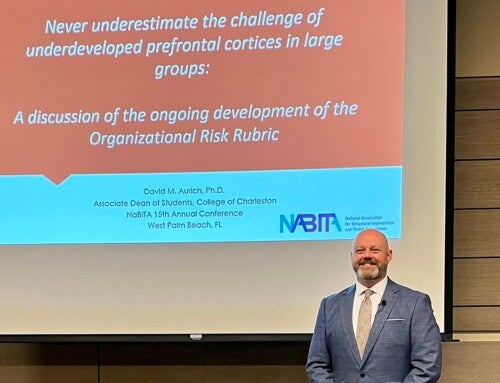October is Cybersecurity Awareness Month, a global effort to hep you stay protected wherever and however you connect online. The overarching theme for the month is, “Do Your Part. #BeCyberSmart.” – and the College of Charleston Division of Information Technology is proud to be a champion for this online safety and education initiative.
Do your part: Implement these tips and tricks now to protect yourself and your family against cyber threats:
- Never click and tell. Keep account numbers, social security numbers and passwords private. Avoid posting information about yourself, such as your full name, address, birthday and even vacation plans online or on social media.
- Limit app permissions. Check your app permissions and learn to say “no” to privilege requests that don’t make sense. Delete apps you don’t need or no longer use.
- Make passwords hard to guess. Avoid using personal information such as your name or pets’ names and common words like password or 1234. Instead, get creative and substitute letters with punctuation or symbols. Consider using the longest password or passphrase (a sequence of words like ILOVEtoreadtheSKY!) permissible.
- Protect accounts with MFA. Multi-factor authentication (MFA) is often available for financial, social media and email accounts. MFA makes your account security stronger and reduces the risk of online fraud and identity theft.
- Be cautious of free Wi-Fi. Beware of connecting to fake public networks. When using free Wi-Fi, avoid conducting any personal business that requires passwords or financial information, configure and turn off file sharing and turn off automatic connect. Always choose “forget network” after using public Wi-Fi. Using your smartphone as a hotspot is often a safer alternative to using an insecure network.
- Learn to spot imposters. Scammers often pose as someone you trust, like a government office, company you do business with or charity. Scammers will ask you for payment, your bank or credit card account number or your Social Security number. Legitimate organizations won’t.
- Research before you donate. Do your homework on organizations before you donate. And never donate with cash, gift card or money wire.
- Don’t pay up front for a promise. Don’t pay up front for things like debt relief, credit or loan offers, a job or a prize. If you do, they will probably take your money and run.
For more information and tips, follow IT’s social media accounts (Twitter, Facebook, Instagram) and digital signage across campus; visit the Federal Trade Commission’s website for scam alerts or to report a scam; or contact one of the following people in IT with questions or comments: Chief Information Security Officer Jamey Rudisell or Senior VP and Chief Information Officer Mark Staples.
Cybersecurity Awareness Month is co-led by the National Cyber Security Alliance (NCSA) and the Cybersecurity and Infrastructure Security Agency (CISA) of the U.S. Department of Homeland Security. For more information about ways to keep you and your family safe online visit https://staysafeonline.org/cybersecurity-awareness-month/ and/or cisa.gov/ncsam.




